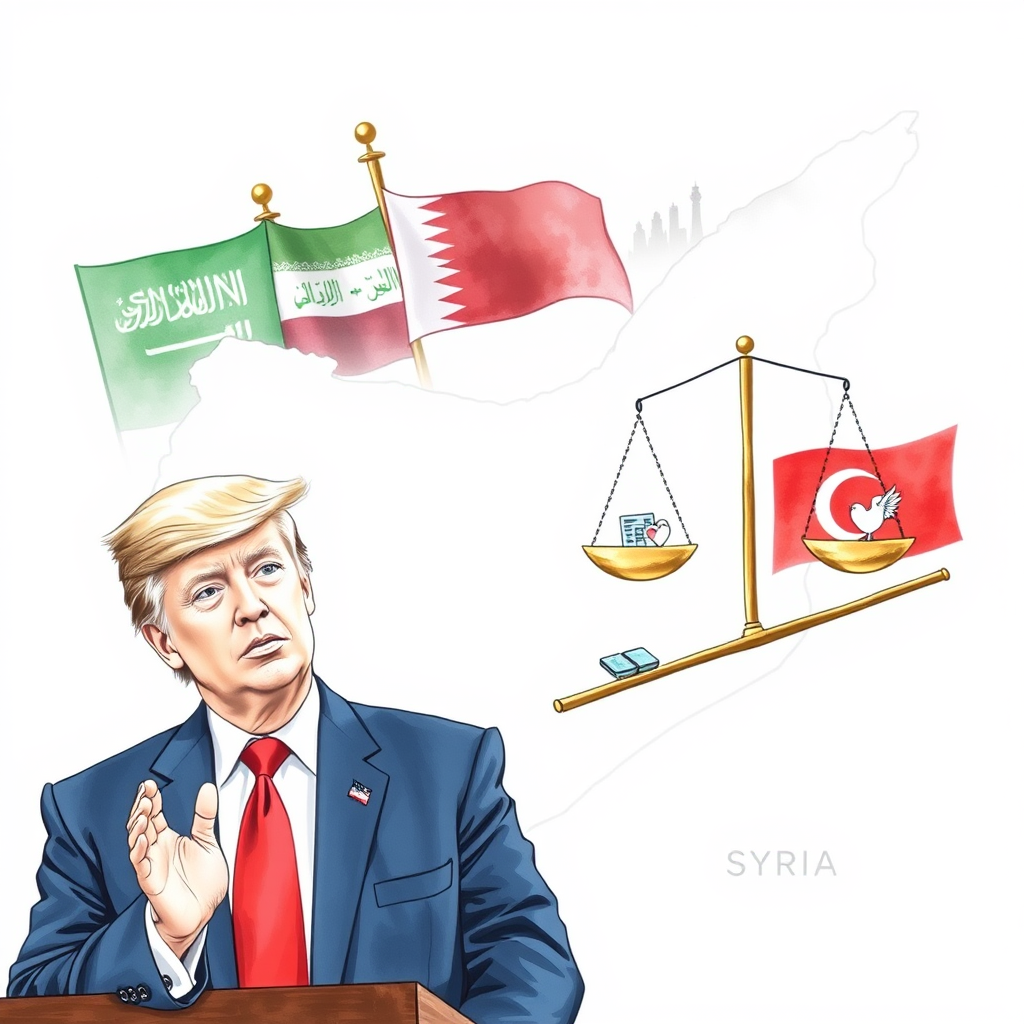Trump to lift Syria sanctions during Middle East tour

During his visit to Saudi Arabia, President Donald Trump unveiled plans to lift sanctions on Syria, an announcement that came during a high-profile investment conference. This Middle East tour, which also includes stops in Qatar and the United Arab Emirates, is centered around securing significant financial agreements. The trip underscores the administration’s focus on economic diplomacy and strategic partnerships in the region.
The decision to end Syria sanctions is a notable shift in policy, one that could have far-reaching implications for both regional stability and U.S. foreign relations. While the specifics of these sanctions and their potential lifting remain unclear, the move suggests a willingness to engage more deeply with Syria, possibly as part of a broader strategy to counter Iranian influence. However, critics may argue that this decision could embolden the Syrian regime and undermine efforts to hold it accountable for human rights abuses.
Moreover, the visit highlights the administration’s emphasis on economic ties, with big-dollar deals likely to be a focal point of discussions. This approach reflects a broader trend in U.S. foreign policy, where economic engagement is seen as a key tool for building alliances and promoting stability. However, it also raises questions about the potential for economic interests to overshadow human rights and democratic values in U.S. policy.
The trip to Saudi Arabia, Qatar, and the UAE comes at a time of significant geopolitical tension in the Middle East. From the ongoing conflict in Yemen to the rising tensions between Iran and Saudi Arabia, the region is a powder keg of competing interests and ideologies. In this context, Trump’s visit and his announcement on Syria sanctions take on added significance, as they could either help to defuse tensions or exacerbate them.
Overall, while the visit and the announcement on Syria sanctions are important steps in U.S. Middle East policy, they also raise critical questions about the direction of that policy and its potential consequences. As the administration continues to navigate the complex web of relationships and interests in the region, it will be crucial to balance economic gains with a commitment to human rights and regional stability.